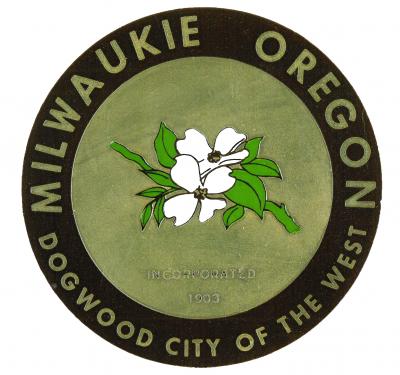- Neighborhoods
-
Community
-
- Overview History Vision Newsroom News Releases Pilot Newsletter Media Contact Projects Volunteer
- Engage Milwaukie Events City Calendar Recreation Biking in Milwaukie Parks and Trails Directory North Clackamas Parks and Recreation Reserve a Room Library
- Schools North Clackamas School District MHS Student of the Month Public Safety Police Clackamas Fire District #1 Code Compliance Emergency Preparedness Emergency Notifications Garbage & Recycling
-
- Business
- Departments
-
Useful Links
-
- Jobs Alerts & Notifications Email Subscriptions Emergency Notifications Meetings City Services A-Z Mapping & GIS
- Contact the City Staff Directory Request a Public Record Report a Code Violation Report a Pothole Report Misconduct Schedule an Inspection Documents & Forms Documents and Reports Forms, Permits, and Applications
- Helpful Links Digital Archives Library Catalog Municipal Code Purchase a Parking Permit Paperless Billing Pay a Ticket or Utility Bill Urban Forest
-
City History
This city history page features historical information about Milwaukie; see the web links below for other resources.
The word Milwaukie, or Milwaukee in the Upper Midwest, is believed to derive from a Potawatomi Indian word meaning "fine land" or "council place" (see Wisconsin Historical Society). Before the arrival of American and European explorers, the Milwaukie area was part of the homeland of the Clackamas tribe, members of the Upper Chinook language group who occupied all of present day Clackamas County, from the Willamette River to the Cascades.
Like it's eastern namesake, Milwaukie, Oregon, is situated beside a well known body of water, the Willamette River, and can credit the river with its initial source of economic activity and commercial success. The geographic area that would become the City of Milwaukie was settled in 1847 by the Lewelling (or Luelling) family, orchardists from Iowa, and formally claimed and settled by pioneer entrepreneur Lot Whitcomb. Whitcomb, who named the town after the city in Wisconsin, was a businessman originally from Vermont, who had served in the Illinois State Legislature before moving to Oregon.
The Town of Milwaukie was incorporated in 1903 by an Act of the Oregon State Legislature and much of the community's initial fame came from the agricultural pursuits of pioneer Seth Lewelling, who helped found the Oregon Horticultural Society and with his foreman Ah Bing developed the Bing cherry. Among their varied interests, the Lewelling family also helped a reform-minded attorney named William Simon U'Ren develop the "Oregon System" of initiatives and referendums that placed the state on the political map. Milwaukie would also be home to another political figure in State Senator Monroe Sweetland, known as the "father of Oregon's modern Democratic party".
"Located on the East bank of the Willamette River, just seven miles south of Portland... is the Home Town of Milwaukie, Oregon. This rapidly growing industrial minded city... is on the main line of the Southern Pacific Railroad and is connected directly with Portland and Oregon City by an electric interurban line." - Milwaukie Business Brochure, circa 1949


